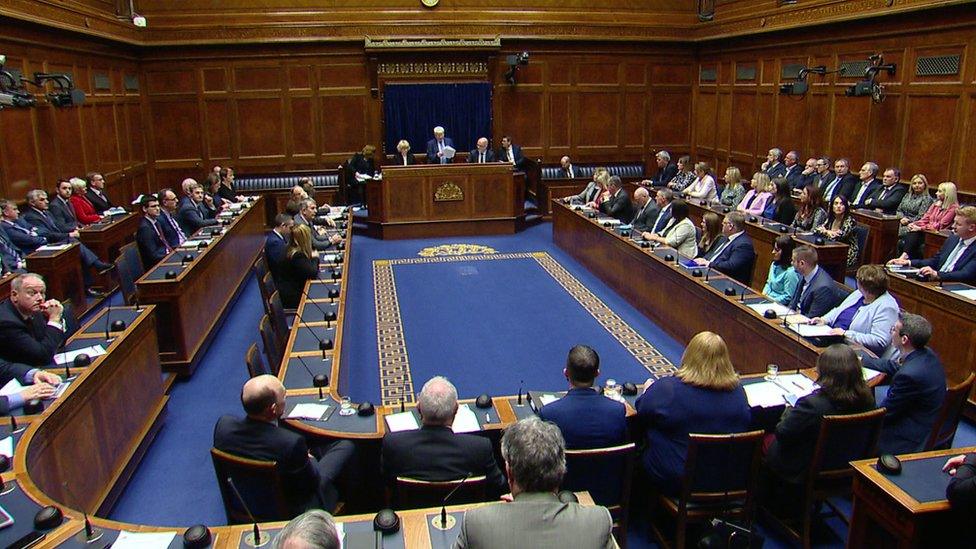Stormont deal: Changing priorities two months since power-sharing restored
- Published
- comments
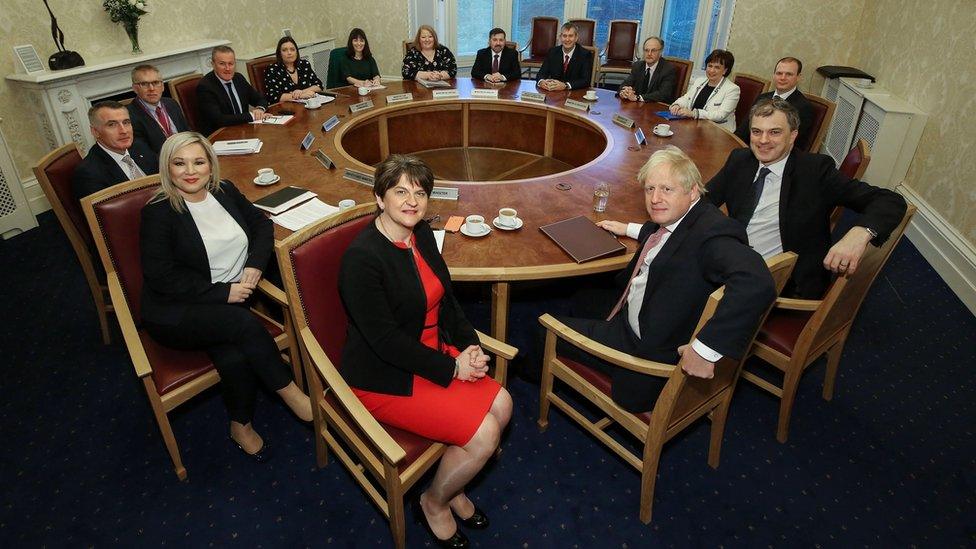
Prime Minister Boris Johnson met the new executive ministers at Stormont Castle when power-sharing was restored in January
It is two months exactly since Stormont's political parties welcomed the restoration of power sharing after a three-year hiatus.
At the time, their main challenge was settling back in to life on the hill and taking decisions stalled by the absence of devolution.
But responding to a rapidly spreading, and potentially deadly, global virus is their first collective test.
The Covid-19 outbreak is not the only difficult issue facing the parties, but for now it is the most pressing one.
Coronavirus response

221 of 237 coronavirus tests carried out in Northern Ireland have been negative
The outbreak has developed quickly since the first case was diagnosed in Northern Ireland on 27 February.
More than 200 people have been tested for the virus, with 16 confirmed cases so far.
The need to respond appropriately to a crisis that has the potential to dramatically affect public life has not been lost on the executive.

EASY STEPS: How to keep safe
A SIMPLE GUIDE: What are the symptoms?
CONTAINMENT: What it means to self-isolate
HEALTH MYTHS: The fake advice you should ignore
MAPS AND CHARTS: Visual guide to the outbreak

Health Minister Robin Swann and the chief medical officer have held regular briefings, updating journalists and the public, with First and Deputy First Ministers Arlene Foster and Michelle O'Neill taking part in emergency government Cobra meetings.
But, for the executive, the biggest questions remain - will tackling the virus move from the containment to the delay stage? And if so, when?
Should schools close or enact remote learning? What about mass public gatherings, sporting and music events, transport and travel plans?
There are no certainties yet, but government officials say they will be guided by expert advice and adapt to changing circumstances.
Stormont has set up its own contingency planning group in the event that the assembly could be temporarily closed, or that some MLAs are unable to get to Parliament Buildings for work, with video-conferencing just one option being discussed.
Money, money, money
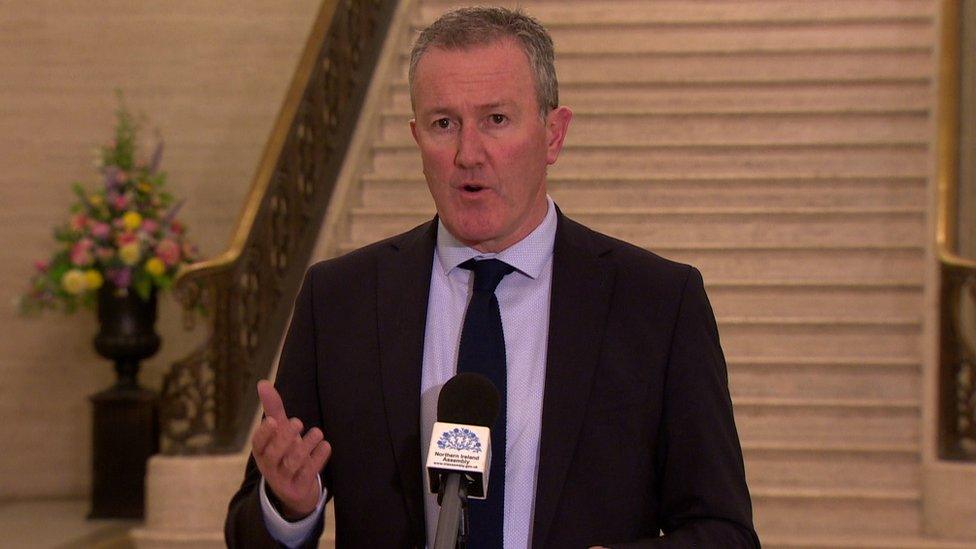
Finance Minister Conor Murphy holds Stormont's purse strings
Wednesday sees Chancellor Rishi Sunak's debut at the despatch box, delivering the first of two Budgets this year.
Extra funding to tackle coronavirus is bound to dominate, with finance ministers from the devolved nations keen to see how that will affect their pots of money.
The Barnett formula is a system of grants that dictates the level of public spending in Scotland, Wales and Northern Ireland.
Under it, extra funding - or cuts - from Westminster are allocated according to the population size of each nation and which powers are devolved to them.
Finance Minister Conor Murphy holds Stormont's purse strings and has delayed bringing his budget to the assembly until he sees how much extra cash Northern Ireland will receive.
He has been urged by some MLAs to provide help to small businesses and employees that may be negatively impacted as a result of coronavirus.
Mr Murphy will then have to take some difficult decisions and allocate funding for the next financial year across Stormont's nine departments; and he will be aware there won't be enough money flowing to please everyone.
Cash-for-ash inquiry
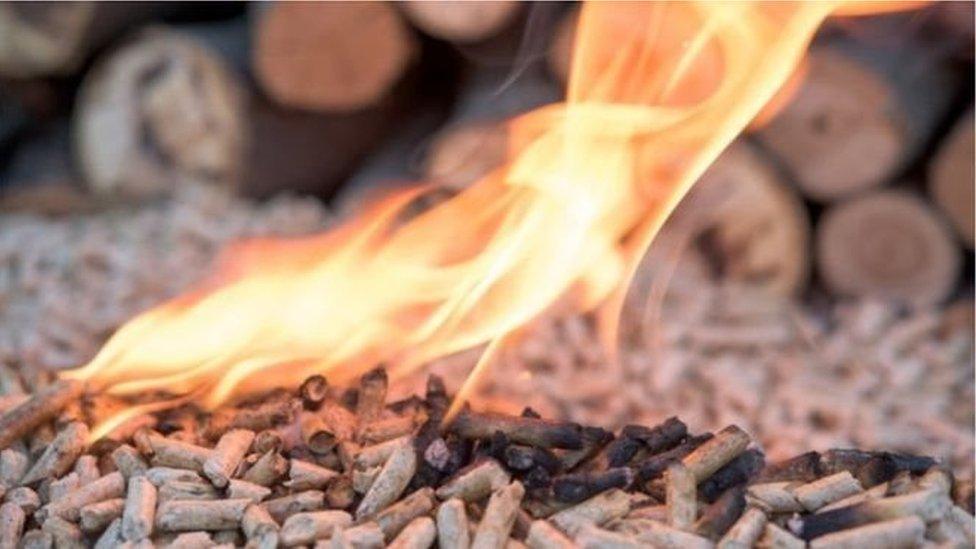
The Renewable Heat Incentive (RHI) inquiry held public hearings for more than a year and gathered more than a million documents in its search for evidence
It was the scandal that brought down the Stormont institutions.
But, despite that, the findings of the Renewable Heat Incentive (RHI) inquiry may not make the biggest headlines when they are delivered on Friday.
The flaws in the green energy scheme came to light in late 2016 and led to a bitter row between the DUP and Sinn Féin.
An inquiry into what went wrong heard hundreds of hours of evidence, which exposed serious issues around transparency and accountability that went right to the heart of governance.
It also raised huge questions about how the political parties operated behind the scenes.
The recently restored executive has already moved to try to pre-empt some of inquiry chairman Sir Patrick Coghlin's findings, by reducing its number of special advisers and changing the rules regarding accountability of ministers and their advisers - with a new code for civil servants due to follow.
But some sceptics, including TUV leader Jim Allister, argue little has changed and say that new legislation must be implemented in order to put the rules into statute.
The first and deputy first ministers will now be in Northern Ireland when the findings are made public, after cancelling their annual St Patrick's Day trip to the US.
But it will be their executive colleague Conor Murphy who faces MLAs to respond to the report on Monday, during a three-hour debate in the assembly.
The executive argues that as the Department of Finance set up the inquiry in 2017, it is proper that it makes the first official comments in the assembly.
Mrs Foster and Ms O'Neill will still likely face scrutiny and questioning from journalists on Friday after the report's publication.
However, given an escalating public health crisis, a new budget and the ongoing Brexit saga, the spotlight of scrutiny may move rapidly away from the inquiry's findings.
- Published10 January 2020
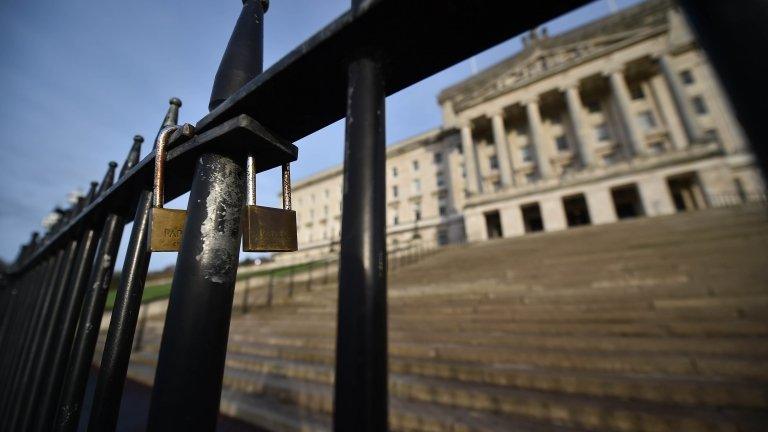
- Published12 January 2020
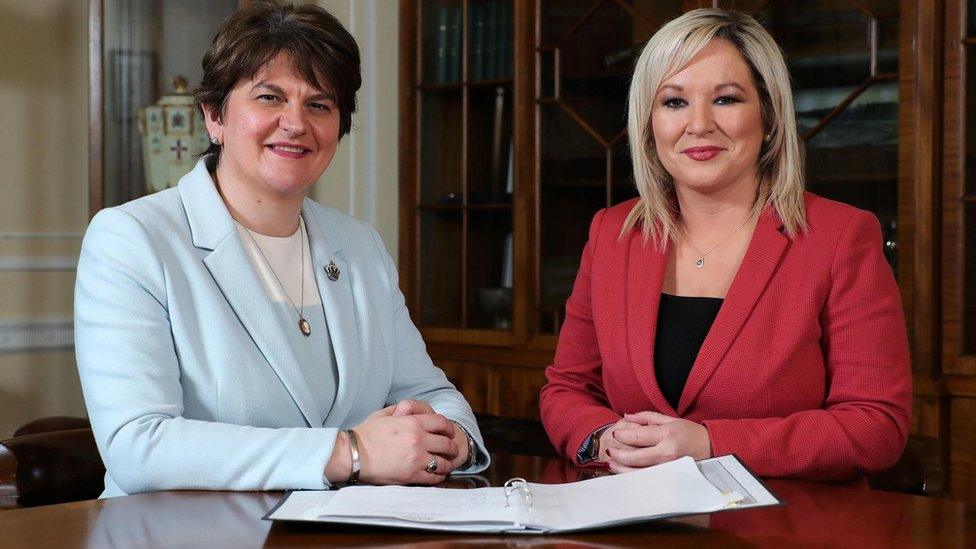
- Published11 January 2020
